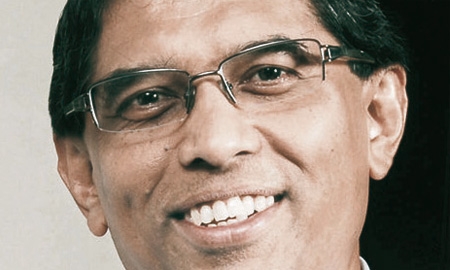Malaysia’s quest to become a technologically developed nation is evident down to its sewerage systems. Indah Water Konsortium (IWK), a wholly owned company of the Minister of Finance (Inc), is Malaysia’s national sewerage company. Besides developing and maintaining a modern and efficient system for the country, it seeks greater value in wastewater management.
“We’ve been embarking on the concept of sustainability through zero waste management,” explains Datuk Ir Abdul Kadir Mohd Din, CEO of IWK. The company actively pursues pilot projects that employ green technology to convert the by-products of wastewater treatment into usable commodities.
“In the sewerage sector we generate waste, which is reusable and recyclable in the form of solid, liquid and gas. The effluent can be recycled for industrial use in cooling systems. For domestic use, the effluent can be used for flushing toilets, apart from other areas in gardening or landscaping,” Abdul Kadir says.
Sludge or bio-solid, can also be converted into bio-fuel and fertiliser through composting and ‘nanobricks’ – bricks produced using sludge via nano-technology.
The other by-product from treated wastewater is methane gas, which can also be used as an energy source. “The volume of sludge that is generated yearly is equivalent to the Kuala Lumpur City Centre Twin Towers. That is a huge volume of sludge that we have and it is untapped. We have ideas, but we have to find ways of marketing them,” comments Abdul Kadir.
He also says that IWK welcomes technology providers to share their know-how to enhance the volume of gas from sludge treatment, and invites them through open tenders under the public-private partnership (PPP) and private finance initiative (PFI) schemes. In 2010, the Government launched a green technology financing scheme and could potentially provide incentives.
“We’re looking for long-term business relationships that benefit the country and support the green concept,” observes Abdul Kadir. “We’re interested in projects that are not only workable but also viable. Only then, a long-term partnership can be fostered.”
Although IWK seeks assistance from the private sector to invest in green technology, the company has turned heads regionally for its own merits in sewerage systems. It boasts a state-of-the-art training centre equipped with actual manholes, septic tanks and sewage treatment plant.
“We’ve been contributing to the wastewater industry abroad, namely Indonesia, Vietnam and the Philippines on various aspects of sewerage management,” says Abdul Kadir. “We’ve also been invited to conferences and forums to share our values and experiences.”

0 COMMENTS